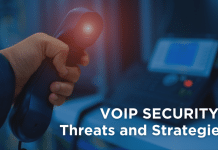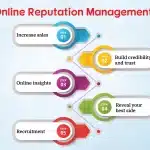Data breaches can happen in companies of any size, from small businesses to multinational corporations, and the consequences can be disastrous. This is because no business wants to experience the exposure of sensitive customer information or internal corporate data, like transaction history, employee information, inventory lists, and other privileged information.
A data breach can be defined as a cyber attack in which sensitive or otherwise protected data is accessed or disclosed by an unauthorized person.
Although data breaches were more common during the Covid-19 pandemic, they can occur at any time. There’s an increased activity of cyber security incidents, such as intrusions and attacks, during the pandemic as organizations and employees have become more vulnerable since they started working remotely.
For business owners, it’s essential to constantly keep a close eye on their operations at any time. It’s also worth noting that as online commerce grows, cybercriminals have more opportunities to deceive buyers concerning credit card information, send fake invoices, and even send bogus ad campaigns containing harmful attachments.
Below we look at how you can protect your company from data breaches.
Obtain Business Insurance
Let’s start with one of the main things you need to do once you launch a business. As a responsible business owner, you should think of all the risks associated with your business and take proper measures. Don’t rush things and endanger yourself by not getting the proper business insurance to protect your organization.
An additional benefit would be to obtain a certificate of insurance in case you need to show proof that your business is insured. This will serve as readily available proof which is not specific to one industry only. It extends to multiple businesses and industries, all from carpenters, yoga studios, accounting firms, and more. The COI will show your clients that you are running a legitimate business and that you’re serious and reliable, which is good for business.
Perform A Risk Analysis
With a risk analysis, you can evaluate what critical information your company is sitting on that may be of interest to others, and in this way create an objective picture of what risks, threats, and vulnerabilities the business faces. The risk analysis can then be used to make decisions to guarantee that you are making the right efforts to avoid or mitigate the effects of security incidents.
Install Adequate Protection
Depending on the information you have and the risk analysis, it is critical to put complete protection in place.
Antivirus software doesn’t provide 100% protection, but it does improve IT security significantly. In addition to antivirus software, you should install a firewall. These two security programs complement each other. Many providers offer security packages that contain both antivirus and firewall. Make sure they are updated automatically.
The firewall acts as a filter between the internet and the computer. It examines, approves or blocks data and prevents intrusion attempts that could exploit vulnerabilities in applications.
Let the firewall be set to “default” and in this way you’ll follow the current safety procedures. As mentioned before, firewalls and antivirus can protect against simpler attacks but don’t help against more advanced threats and targeted attacks. Network monitoring, logging and vulnerability monitoring are some efforts that should be standard for a company that keeps critical information that shouldn’t fall into the wrong hands. Additionally, PRTG Multiboard is a unified monitoring tool that can help companies to streamline these efforts and achieve a comprehensive view of their security posture.
Backup Routines
If your company lacks specialized IT staff, this is the best solution. There are many online backup providers to choose from. The solution should be based on data being encrypted before being sent over the network and stored on secure servers at the provider. Encryption ensures that no unauthorized person can access data, either during transmission or with the supplier’s staff.
Ideally, the backups should be taken completely automatically and continuously by both emails, operating systems, user files, and databases. Make sure to regularly check that the backup routine is working properly.
Educate Employees
Your employees aren’t only your main asset but can also be your biggest security risk. All employees need knowledge and awareness of how to act to prevent a virus attack or if sensitive information ends up in the wrong hands.
By educating staff in using good passwords, updating software, and avoiding clicking on unknown links and attachments, you can avoid multiple risks. Also, make sure to establish a safety policy and ensure that it is complied with.
Final Thoughts
As most companies’ assets are stored digitally, the motivations for criminals to commit data breaches grow. Many entrepreneurs wonder what to do to avoid being hacked. This is a question that requires a comprehensive answer but the above examples can be truly efficient when trying to prevent data breaches and protect your company in the best way.











